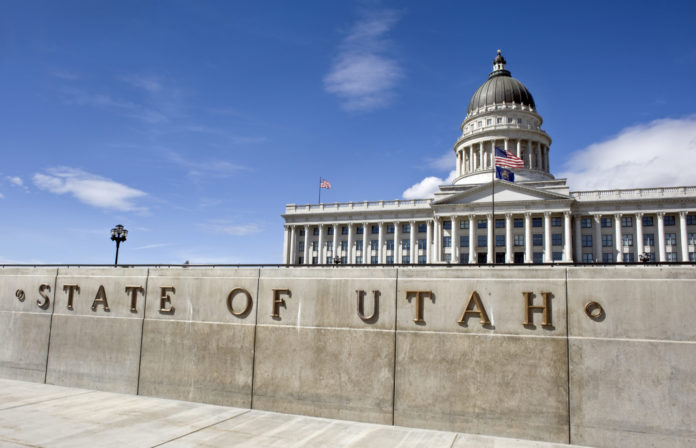SALT LAKE CITY- Utah Governor Gary Herbert (R) has signed a bill to legalize medicinal cannabis use after state lawmakers made changes to the law approved by voters only weeks ago.
In a stunning move, the Utah Medical Cannabis Act will now replace Proposition 2. Some patients and advocates are worried about several key changes, including the elimination of a provision that allowed patients to grow their own cannabis if a dispensary was not located within 100 miles of their home. This could create hardships for patients who are unable to travel far distances regularly. Landlords will now also have the opportunity to deny renting to individuals simply because they are medicinal cannabis cardholders. Utah law allows for the state legislature to replace or alter ballot initiatives.
Additionally, there will be fewer dispensaries licensed in Utah under the new regulations, potentially reducing safe access for patients as well as opportunities for entrepreneurs looking to operate. This can reduce job creation and tax revenues collected as well.
Some feel that that the new regulations will delay the implementation of the medicinal cannabis program in Utah.
“The Utah Legislature seeks to create a completely unworkable system for the distribution of medical cannabis. Expect to see countless delays from Utah in implementing this program, and an incredibly reduced patient population compared to who would have qualified under Proposition 2,” David Mangone, Director of Government Affairs & Counsel for Americans for Safe Access told mg. “Even if this bill served as an improvement to what voters passed, which it unequivocally does not, it sends a clear message to the Utah electorate that their voice does not matter.”
Morgan Fox, Media Relations Director at National Cannabis Industry Association seemed prepared for the move to by Utah lawmakers.
“This compromise bill was in the works for months as part of a deal between advocates, lawmakers, and some groups opposed to the initiative including Mormon leaders, whereby both groups would cease campaigning weeks before the election in exchange for an agreement to pass a medical cannabis bill in a special session regardless of the outcome of the election,” Fox said. “There are obviously problems such as the decreased number of dispensaries and elimination of home cultivation, but the bottom line is that seriously ill Utah residents will soon be able to access medical cannabis.”
Prop. 2’s journey from signature collection to the ballot was lead by the Utah Patients Coalition. The group’s Director, Desiree Hennessy, who fights for medicinal cannabis legalization on behalf of her son to help treat symptoms related to his cerebral palsy, is still upbeat about medicinal cannabis in Utah. After years of being shut out of a conversation with authorities about the needs of patients, lawmakers are finally soliciting her recommendations.
“We ran a ballot initiative and it created a lot of conversation, it forced communication and it forced the legislators to take actually take us seriously,” Hennessy told mg. “When it passed, it was proof to the legislators that they had to act, they had to give the people of Utah something to relieve the suffering and the pain that they were not getting from pharmaceutical companies.”
Hennessy is now seeing some of her work pay off, even if the legislature’s decision to change Prop. 2 is a bit of a setback.
“I’m disappointed that they were able to overturn Proposition 2, but to be fair, this is the conversation we’ve wanted to have for years,” Hennessy said.”We now have a platform to educate from.”
“We are no longer fighting for medical cannabis, we’re fighting about medical cannabis,” Hennessy added.
While Utah may soon have a flourishing medicinal cannabis market, the legislature’s decision to overturn a vote by its residents is a major cause for concern for many. Will potential dispensary operators still want to do business in a state that decides it can remake voter-approved legislation at will?










